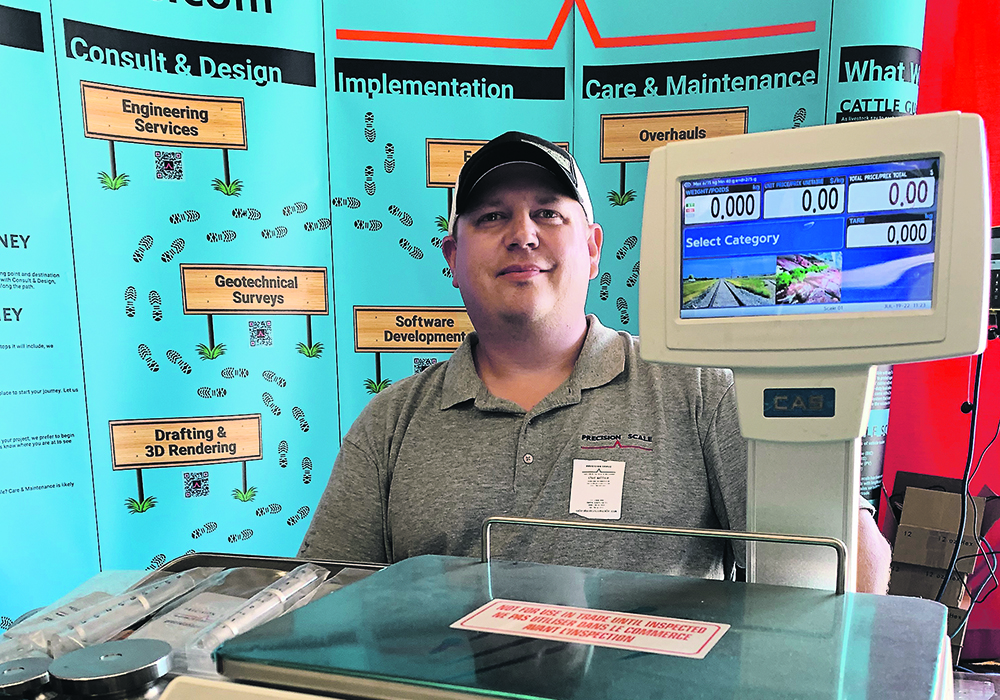Farm scales are so well-designed that they blend in and get taken for granted.
That’s great, so long as they’re working. But when farmers and agricultural businesses forget about them, problems can literally build up.
“If it’s got mud and whatnot, or cows are tracking in debris and it’s building up between your approach and your scale … it’s going to cause binding,” said Chad Wallace, a technician at Precision Scale, who was working his company’s booth at the Ag in Motion outdoor farm show held July 19-21 near Saskatoon.
Read Also

Volatile temperatures expected for this winter
DTN is forecasting a lot of temperature variability in the Canadian Prairies this winter. Precipitation should be close to average.
“That’s going to cause the scale to not settle naturally. It’s going to not rest properly on the load cells and you’re not going to get a good reading.”
Accurate weights are crucial for measuring livestock weight gains, feed weights and truck loads, yet it is often done with little thought given to proper scale maintenance.
Dust, mud, manure, grains, gravel and other common farmyard detritus can end up in critical areas, especially during mucky times, like spring and winter.
Animals track in muck. Trucks drop lots of mess.
“Make sure it’s clean underneath and between the edges,” said Wallace.
“The only thing you want touching the load-weighing devices is the scale itself.”
If scales are affected by a build-up of material, they can give inaccurate measures, provide different weights for identical loads, and mess up results.
“It won’t be consistent,” said Wallace.
















